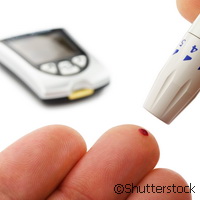The satiation hormone and women's health
Researchers in Sweden have discovered that neurotensin, a satiation hormone produced in the human brain and intestine that circulates in the blood, could raise the risk of heart attack, breast cancer and diabetes in women. Presented in the Journal of the American Medical Association (JAMA), the study also found a link between neurotensin and premature death in women, with cardiovascular disease being one of the significant factors. The study sheds fresh light on risk assessment and preventive treatment research. 'It was surprising to find such a clear link to the risk of type 2 diabetes and cardiovascular disease, as well as to breast cancer,' said lead author Olle Melander, a professor from the Department of Clinical Sciences at Lund University and a consultant at Skane University Hospital in Sweden. 'Obesity is a common risk factor for all three conditions, but the connection with neurotensin is not explained by obesity or other known risk factors.' Previous research identified that the hormone plays a role in digestion and pain in the gastrointestinal tract, and animals that were injected with neurotensin had altered eating habits. 'This is the first time a satiation hormone has been linked to these three common diseases in women,' commented co-author Professor Marju Orho-Melander from the Department of Clinical Sciences at Lund University. 'It therefore opens up a new field for continued research on risk assessment and preventive treatment.' According to the researchers, it is interesting that the findings apply to women only. While information from research on breast cancer is standard, not much data have been forthcoming about the development of cardiovascular disease in women. The researchers said the strong association between neurotensin and these conditions in women impacts the life expectancy of women patients. They added that this link adds weight to the idea that neurotensin can be used as a clinical risk marker for these conditions. The findings also offer the medical world new opportunities for early identification of women who are at greater risk of developing cardiovascular disease. The current known risk factors do not enable researchers to predict when this disease can occur in women. The findings can make it possible for patients to receive preventive treatment earlier. 'Because the hormone circulates around the body in the blood, levels can be measured with a normal blood test, which is an advantage,' said Professor Melander. The researchers examined blood samples from more than 4,600 people who participated in the Malmö Diet and Cancer study in Sweden. All subjects gave blood samples over a number of years, making it possible for the researchers to identify a connection between neurotensin levels and the women who later developed one of the three disorders. Patients who follow a low-fat diet could help reduce neurotensin production, which in turn could potentially regulate neurotensin levels, according to the researchers. But if neurotensin is to work as a target for treatment, a causal relationship must first be established, they added. The researchers believe current genetic studies could help lead to the identification of this relationship.For more information, please visit:Lund University:http://www.lunduniversity.lu.se/Journal of the American Medical Association:http://jama.jamanetwork.com/journal.aspx
Countries
Sweden



